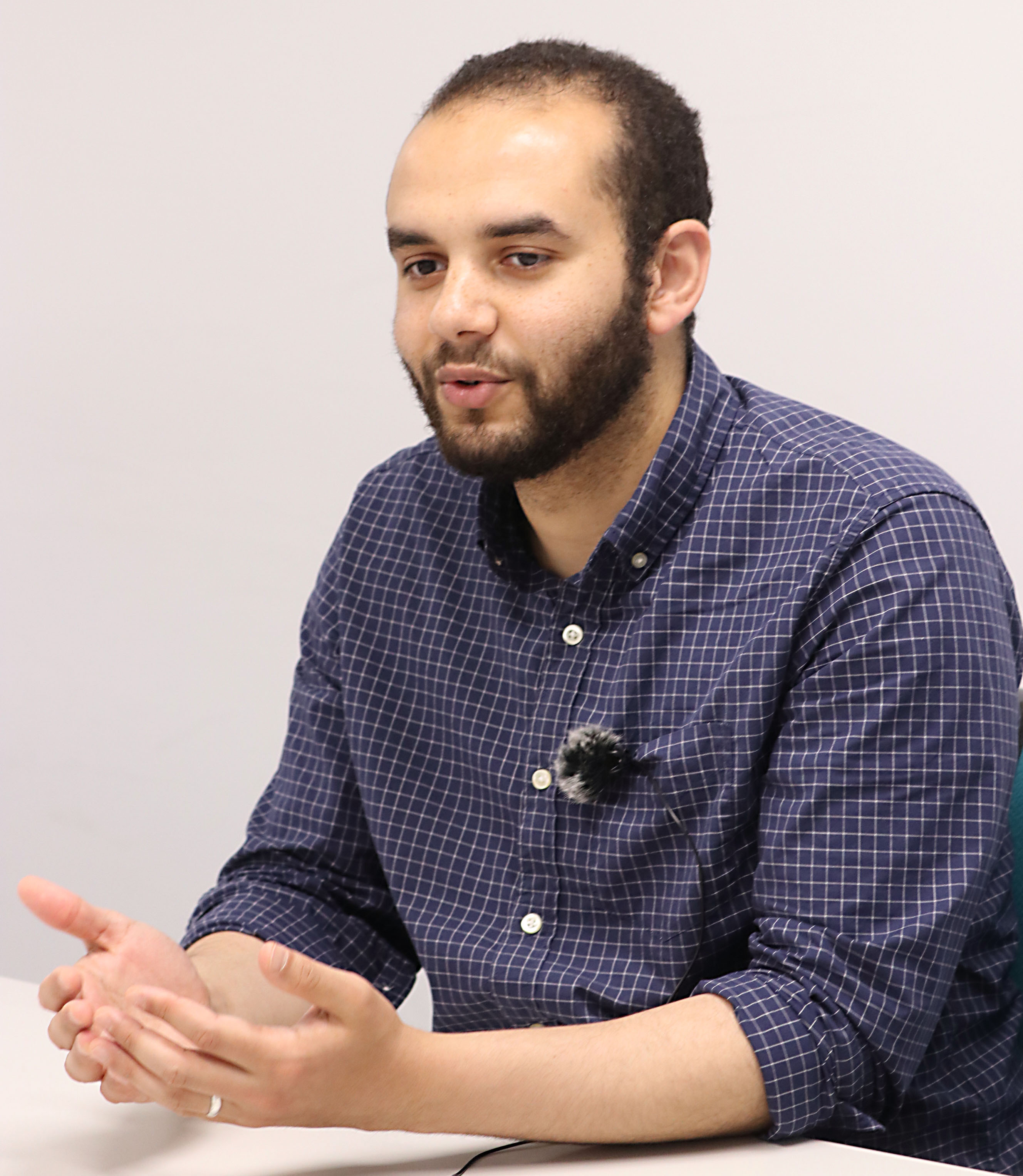
Currently Lecturer at Hitotsubashi University's Institute of Innovation Research from 2018; GRIPS GiST program Postdoctoral Fellow 2017-2018; Ph.D. in Public Policy from GRIPS 2017; Master's degree in Physics from the American University in Cairo 2014; Two-year Graduate Diploma from the Higher Institute for Islamic Studies, Egypt 2013; Bachelor's Degree from the American University in Cairo 2012
Many investigations and discussions have been going on for the Open Access (OA) of academic papers for more than 20 years ever since the early World Wide Web days. The study on OA has been focusing on the effects OA gives to the academic community, i.e., OA papers have more references compared with the papers for a fee. On the other hand, the study of OA effects to non-academic world has not sufficiently been done. For this reason, I investigated and analyzed how OA papers are used in non-academic communities and proposed the analysis results to the policymakers and researchers.
Q: What motivated you to study at GRIPS Ph.D. program?
A: I obtained Bachelor's and Master's Degrees in Physics from the American University in Cairo. I wanted to continue physics studies at the university. However, insufficient research facilities and equipment in Egypt made it difficult to continue the research. There was no other choice except going abroad when it comes to think about my research career in physics. Actually many scientists move to the developed countries from Egypt and other developing countries for the same reason.
At the same time, I learned that there is a field named Science, Technology and Innovation (STI) Policy. I investigated that field and learned the importance of developing economy using S&T enterprises as exercised in developing countries, and also establishing policies that build the country's S&T ecosystem.
I thought that this is the field that I should pursue. As the current society is run based on knowledge, low S&T-level countries have difficulties in reaching strong economy and rich life. This is true in Egypt and others whose S&T capabilities are not strong enough. This has made me think that my studying STI policy may contribute to improving the Egypt's S&T status and I might at least be able to change the situation so that the scientists do not have to leave Egypt to continue their studies.
At that time, the number of STI programs were few. I came to know GRIPS through my friend, a foreign student and a part-time worker at the Library of the American University in Cairo. I took a look at the GRIPS website which led me to the STI program that is lined up with faculty members who are experts for using S&T for development.
Frankly speaking, I applied to some universities in the U.S., but was not accepted as I did not have any research experience in studying public policy. On the other hand, GRIPS returned to me, saying "we would like to enrich our program by accepting students of various backgrounds, including natural science and engineering." I was impressed by this reply from GRIPS.
Q: What do you think is the attraction of the GiST program? What did you learn there?
A: The program enabled me to have knowledge about various academic fields. Unlike economics and physics, the STI policy study is not a systematized academic field. It is something interdisciplinary, instead. Thus, the STI program is so designed that you can obtain knowledge about various academic fields, including economics, public policy, social science, various issues surrounding S&T, and law.
The second point of the GiST program is to teach experience-based policymaking know-how. For example, my mentor Prof. Koichi Sumikura's classes provided me not only with general knowledge, but also real cases of university-industry collaboration and real stories surrounding emerging S&T. I could learn the details of theory building and accumulation of know-how in this field, and how STI policies are implemented in society.
Q: What kind of research do you focus on now?
A: I work as a project-based lecturer at Hitotsubashi University's Institute of Innovation Research, and am focusing on the mechanism of how the universities obtain research funds from Japanese foundations, and how to promote university-industry collaboration in developing countries. The latter that is related to the motivation that made me study STI policy is very important as it is to use S&T knowledge in economy. I could not focus on this theme during my student days due to lack of data. This topic is not simple, but I would like to do my best to pursue this study.
My goal is to use what I learned at GRIPS for the Egyptian Government. To attain that goal, I wish to accumulate my experience by working for international organizations like the World Bank, UNESCO, and United Nations. By assuming a post in Egypt after that, I would be able to make a substantial contributions to my country as an international STI policy specialist. I may, of course, choose my career of working in academia or an industry sector, though.